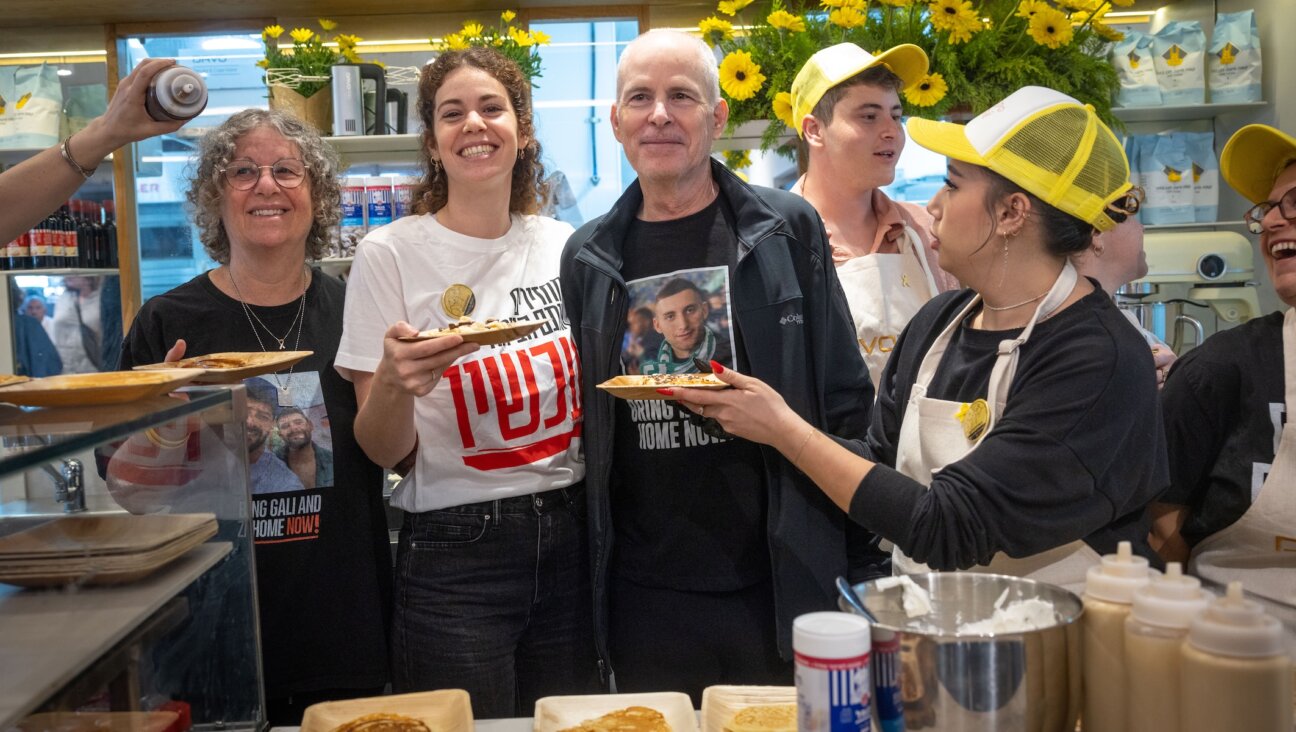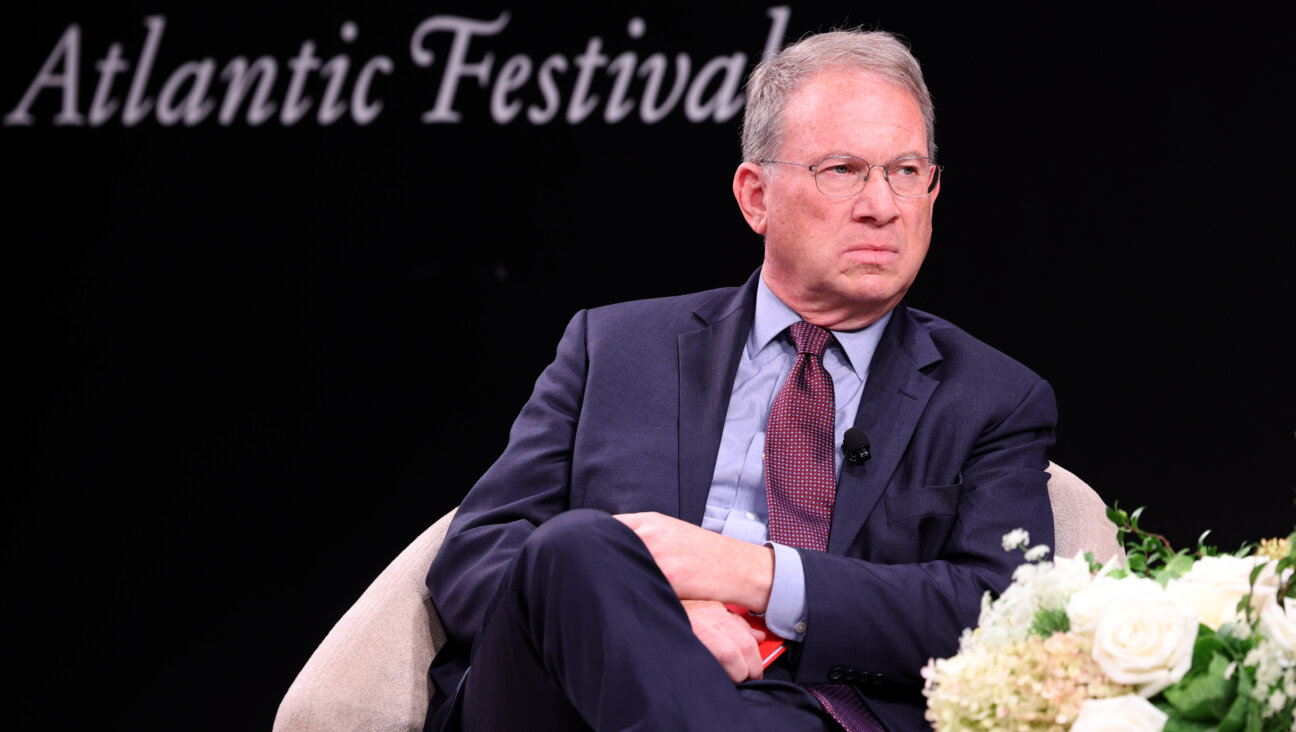Saudi King Brings Rabbis and Imams Together in Spain

TALKING: Rabbi Marc Schneier talked with the Saudi king and the chairman of the Fiqh Council of North America at a meeting to promote interfaith dialogue in Spain.
Despite reservations from conservative Jewish and Muslim quarters and controversies over the guest list, an unprecedented interfaith conference convened by Saudi Arabia was attended by nearly 300 representatives from the world’s major faiths in Madrid this past week.

TALKING: Rabbi Marc Schneier talked with the Saudi king and the chairman of the Fiqh Council of North America at a meeting to promote interfaith dialogue in Spain.
The meeting, which was hastily organized in recent weeks, featured calls for peaceful coexistence and steered clear of sensitive political issues such as Iraq, Iran and the Palestinians. For many of those in attendance, the primary importance of the conference was the fact that it was taking place at all.
“I would just use the old Woody Allen adage: Ninety percent of life is just showing up,” said Rabbi David Rosen, director of interreligious affairs at the American Jewish Committee. “This is a historic event just by the very fact that it is taking place.”
The run-up to the conference was marked by a series of disputes. One involved Rosen, who is based in Jerusalem and holds dual Israeli and Irish citizenship.
After the Associated Press reported that he was the only Israeli invited, the Saudi organizers, who had purposefully not invited Israelis or Palestinians, scrambled for a few days before deciding to list him as American in the conference literature. This prompted a barbed reaction from Israel.
“Practically speaking, he is being invited as a foreigner and not as an Israeli,” said Arye Mekel, an Israeli Foreign Ministry spokesman. “If they really wanted to make this significant, they should have invited real Israeli rabbis.”
Rosen stressed that the organizers had never intended to invite him as an Israeli, and commended them for finding a way to keep him on the list.
“When I went to salute King Abdullah, I made a point of identifying myself as a rabbi from Jerusalem, and although some people in his entourage gasped, he warmly greeted me,” Rosen said.
The Saudis also had to walk a fine line vis-à-vis their own religious hardliners. In an apparent effort to satisfy traditionalist clerics, the word “religious” was dropped from the official name for the gathering, to the “World Conference on Dialogue.” In addition, while the choice of Spain as a host was officially meant to recall the golden era from the eighth to the 13th centuries when Muslims, Christians and Jews lived together in relative peace under Islamic rule, several participants said it was in fact a deliberate move to deflect domestic criticism from Wahhabi clerics.
Critics of the conference pointed out that the Spanish venue was a stark reminder that non-Muslims are not authorized to practice their faith openly in Saudi Arabia, thus casting doubt on the kingdom’s real commitment to interfaith dialogue.
Moreover, skepticism about the organizers’ willingness to avoid political issues was fueled earlier this month by reports that the conference’s principal Jewish speaker was Rabbi Yisroel Dovid Weiss, a member of the anti-Zionist Neturei Karta group. Weiss was eventually disinvited after complaints from several groups, including the Islamic Society of North America. He was replaced by Rabbi Arthur Schneier of Manhattan’s Park East Synagogue.
Another controversial issue was the absence of women speakers at the conference, which was publicly mentioned by several participants as a “serious problem,” according to Rabbi Arthur Waskow of the Shalom Center.
But the controversies were by most accounts a sideshow at the conference. With both Abdullah and his Spanish counterpart, King Juan Carlos, calling for constructive dialogue, interfaith amicability marked much of the gathering.
“A Muslim king sponsoring a meal hosted by a Catholic king at which Jews had kosher meal options,” marveled Rabbi Burton Visotzky from the Jewish Theological Seminary. “The event represents a sea change in Saudi attitudes and theology.”
The Forward is free to read, but it isn’t free to produce

I hope you appreciated this article. Before you go, I’d like to ask you to please support the Forward.
At a time when other newsrooms are closing or cutting back, the Forward has removed its paywall and invested additional resources to report on the ground from Israel and around the U.S. on the impact of the war, rising antisemitism and polarized discourse.
Readers like you make it all possible. We’ve started our Passover Fundraising Drive, and we need 1,800 readers like you to step up to support the Forward by April 21. Members of the Forward board are even matching the first 1,000 gifts, up to $70,000.
This is a great time to support independent Jewish journalism, because every dollar goes twice as far.
— Rachel Fishman Feddersen, Publisher and CEO
2X match on all Passover gifts!
Most Popular
- 1

Film & TV What Gal Gadot has said about the Israeli-Palestinian conflict
- 2

News A Jewish Republican and Muslim Democrat are suddenly in a tight race for a special seat in Congress
- 3

Culture How two Jewish names — Kohen and Mira — are dividing red and blue states
- 4
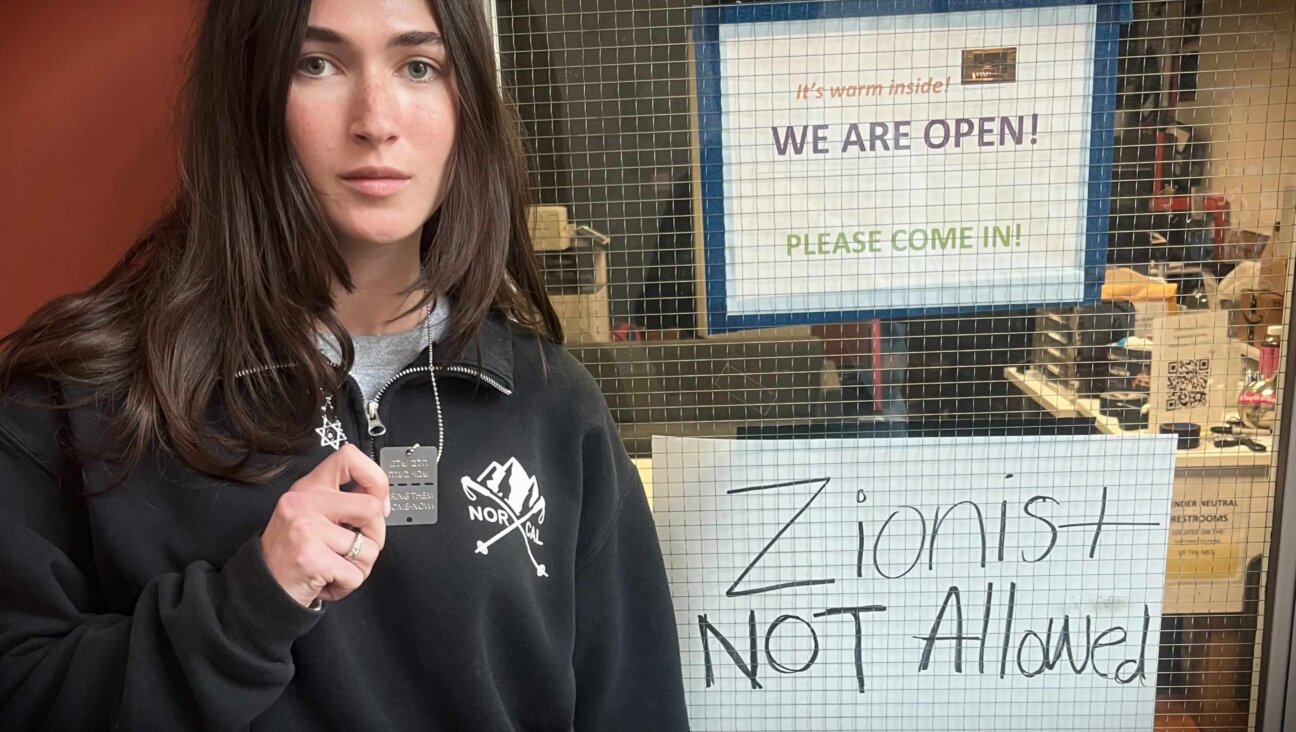
Opinion Is this new documentary giving voice to American Jewish anguish — or simply stoking fear?
In Case You Missed It
-
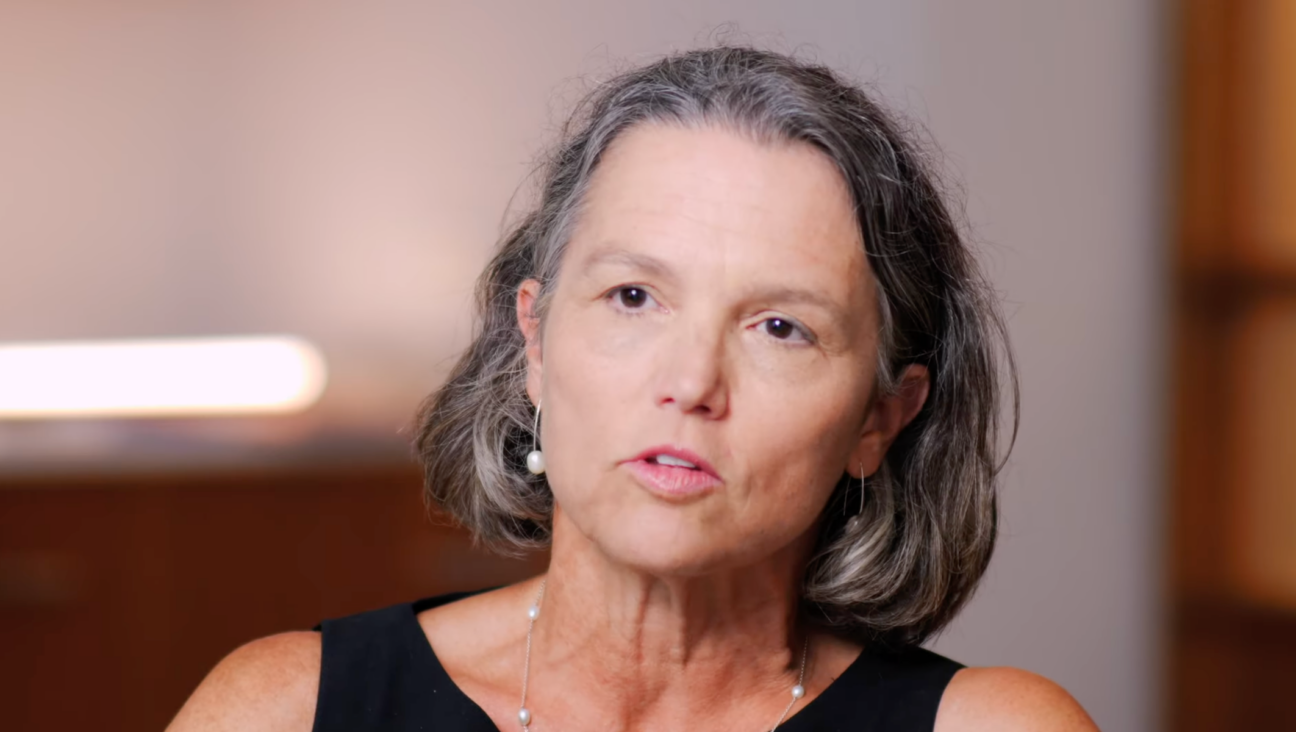
Fast Forward Katrina Armstrong steps down as Columbia president after White House pressure over antisemitism
-
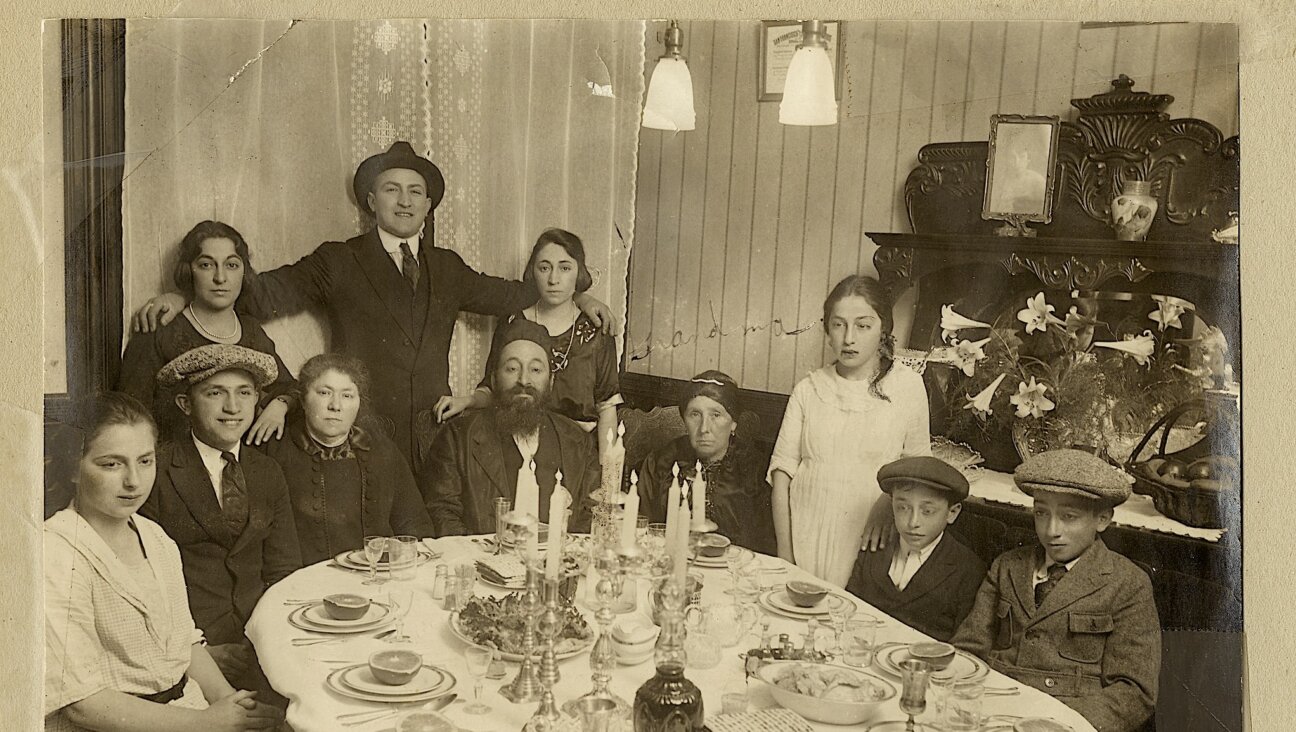
Yiddish אַ בליק צוריק אויף די פֿאָרווערטס־רעקלאַמעס פֿאַר פּסח A look back at the Forward ads for Passover products
קאָקאַ־קאָלאַ“, „מאַקסוועל האַוז“ און אַנדערע גרויסע פֿירמעס האָבן דעמאָלט רעקלאַמירט אינעם פֿאָרווערטס
-
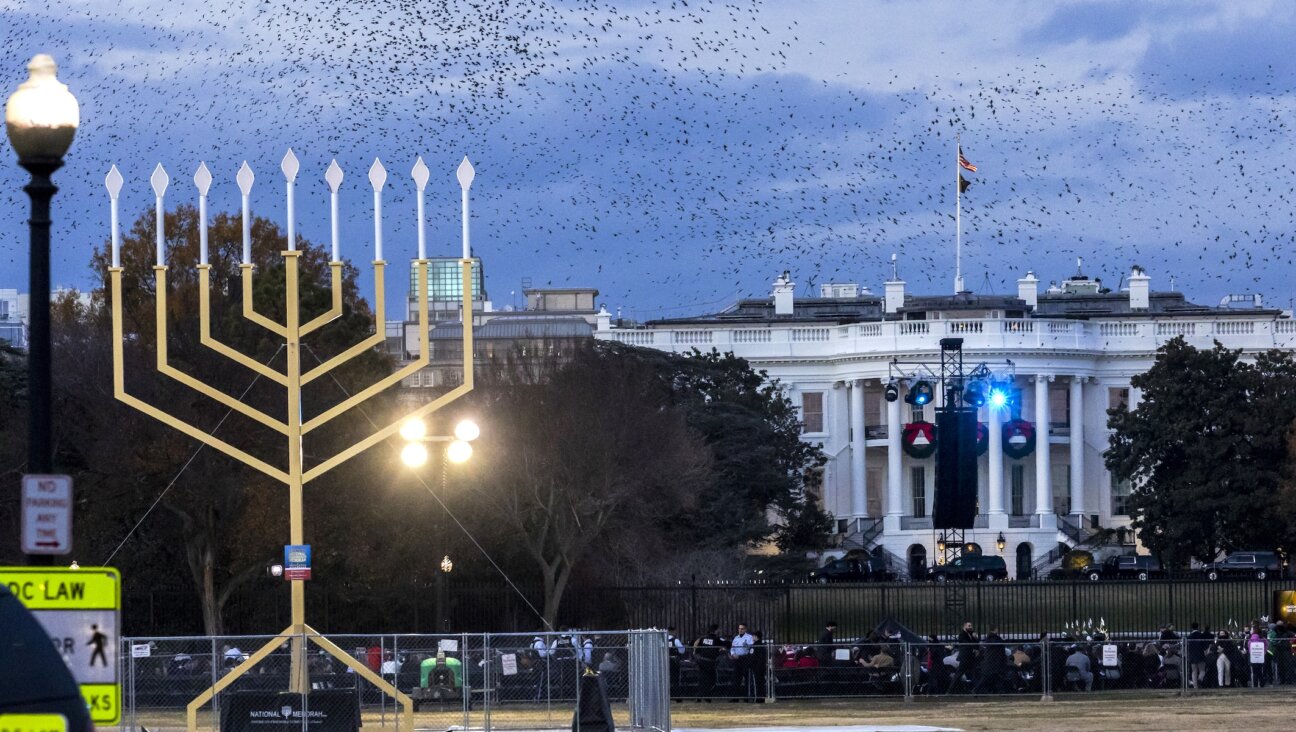
Fast Forward Washington, D.C., Jewish federation will distribute $180,000 to laid-off federal workers
-
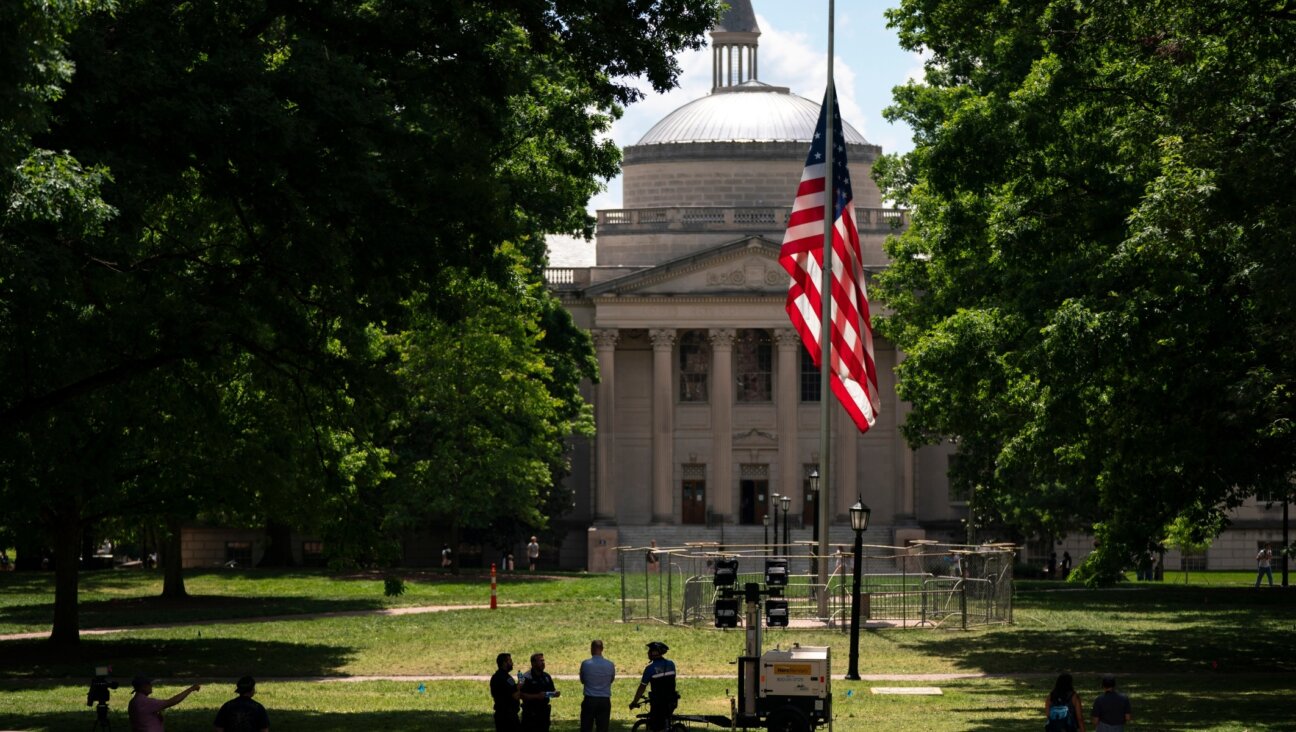
Fast Forward House approves bill requiring campuses to report more foreign funding
-
Shop the Forward Store
100% of profits support our journalism
Republish This Story
Please read before republishing
We’re happy to make this story available to republish for free, unless it originated with JTA, Haaretz or another publication (as indicated on the article) and as long as you follow our guidelines.
You must comply with the following:
- Credit the Forward
- Retain our pixel
- Preserve our canonical link in Google search
- Add a noindex tag in Google search
See our full guidelines for more information, and this guide for detail about canonical URLs.
To republish, copy the HTML by clicking on the yellow button to the right; it includes our tracking pixel, all paragraph styles and hyperlinks, the author byline and credit to the Forward. It does not include images; to avoid copyright violations, you must add them manually, following our guidelines. Please email us at [email protected], subject line “republish,” with any questions or to let us know what stories you’re picking up.








